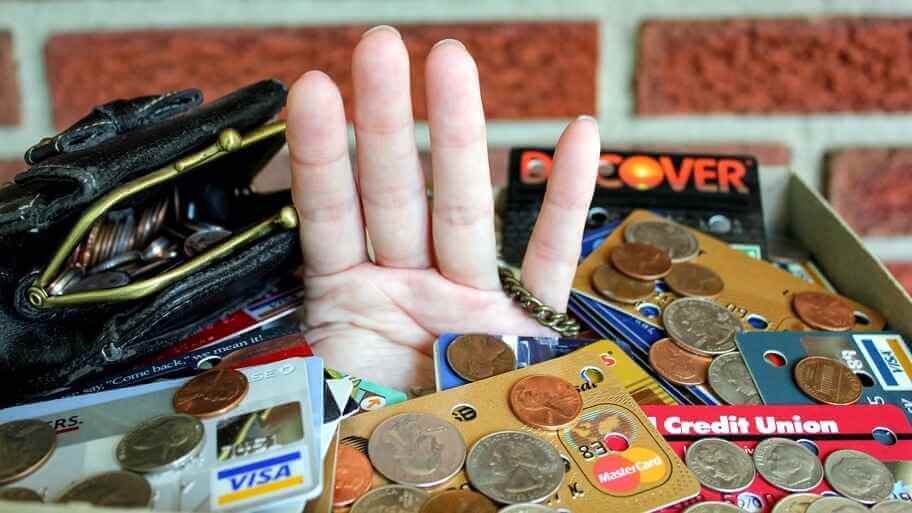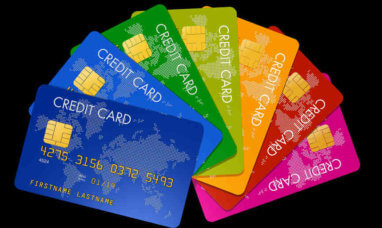Do you dread looking at your credit card bill each month? Even though you faithfully make your minimum payment, the total always seems to creep up.
How is this possible?
Without a good understanding of how credit card interest works, it’s easy to get in over your head. Understanding credit card interest and how to get your bill actually to go down will be made easier if you follow the tips of this article.
What Is Credit Card Interest?
Nobody will hand you money without expecting something in return. Interest is what the credit card company gets in return for the money they lend you every time you charge something to your card.
Interest is calculated using what’s called the Annual Percentage Rate or APR. Most credit cards have a variable APR. Some will charge different APRs for different purchases. For example, a purchase at a store will usually carry a lower APR than a cash advance.
Since interest rates are variable, you might be wondering what can increase your credit card’s APR and if you should be worried.
Generally, the APR fluctuates with the prime rate. Companies can only raise your APR after a specific period of time. However, if your credit score drops considerably, or you are more than 60 days behind on payments, your credit card company has the right to raise your APR.
Unfortunately, credit card interest rates tend to be pretty high to start with. Currently, the average APR for credit cards is 16.20%.
How Does Credit Card Interest Work?
It is easy to get confused when trying to factor an APR into your monthly payments. Credit card interest is not so straightforward. You don’t just pay a flat interest charge that’s a percentage of the total amount you borrowed—credit card interest compounds. To account for this, you have to convert a flat interest rate to APR.
Let’s say you carry a balance of exactly $1000 for a year on a card with a 16% APR. It may seem like you would pay $160 in interest on that money. In reality, you pay more than $160 because credit card interest is calculated daily. This means your balance goes up a few cents each day. If you don’t pay it off, you will start paying interest on the interest.
Ignoring payments, if you had a $1000 balance for a year and a 16% interest rate, you would pay $173 in interest — not $160. The charges keep racking up until you pay off the balance.
Now you can see how people get in trouble so quickly with credit cards! If you take out money you know you can’t pay back quickly, you can end up over your head in debt. This is why it’s essential to use your credit card responsibly.
Interest Rates: What’s a Good One?
Credit card interest rates vary considerably. As mentioned, the average hovers around 16% right now. So, this is a good number to aim for if your finances are average. People with higher credit scores can generally qualify for lower rates, but you will probably be stuck with a higher rate if your score is low.
Shop around to find the best rate—the lowest rate you can qualify for. You should also consider other factors when choosing a card. For instance, you will want a card with low annual fees and a good rewards program. You also want a card that best meets your specific needs. Just avoid credit card red flags like too much interest rate. So, if you fly a lot, you may want a card with airline miles.
After all, if you plan to pay your balance in full each month, the APR won’t matter to you. But don’t ignore it completely. If you end up missing a payment, you don’t want to be stuck with a high bill.
Best Credit Cards of February 2026
Why Every Penny Counts: Two Scenarios for Paying Off a Credit Card
To further illustrate the effect of compounding interest and the importance of paying off debt, let’s look at two scenarios.
Let’s say Suzy and Sally each have $1,000 in credit card debt and a 16% interest rate. Both are faithfully making their payments on time. However, Suzy is only making her minimum payment of $20, while Sally is adding an extra $20 to her payment each month.
It will take Suzy 10.5 years to pay off that $1,000, and she will pay $994.19 in interest — almost matching what she borrowed!
On the other hand, by paying $40 a month instead of the minimum $20, Sally fares far better. She will have paid off the $1000 debt in 2.5 years and will have paid only $224.55 in interest—a savings of almost $770!
Should You Pay Your Balance in Full Each Month?
Absolutely! As the previous examples illustrate, the best scenario is to pay as much as you can each month. If you pay your credit card bill in full each month, you will never carry a balance. So, you never pay any interest at all. Making these payments will save you lots of money, and you can avoid falling into greater and greater debt.
If you have a credit card that offers rewards with no annual fee, you essentially get paid to use the card and never have to pay the credit card company a dime.
How to Get Out of Credit Card Debt
What if you are already buried in credit card debt? How do you get out?
A suitable method is to calculate your EMI. An Equated Monthly Payment is a common concept used by lenders for all types of loans. Borrowers pay a fixed amount each month until the loan is paid off.
Some credit card lenders will allow you to use this method to pay off your balance. They might even contact you with this option after you make a large purchase.
As a general rule of thumb, taking the EMI option makes sense if it takes longer than three months to pay off your balance. It raises your minimum monthly payment to an agreed-upon higher amount to facilitate paying down your balance.
Use an EMI calculator for simple interest and compound interest to understand the difference between these two. It also helps motivate you to pay off your card faster by revealing how much more compound interest will cost you.
Keep in mind that EMI can be calculated in two ways. The first is fixed. In this case, your payment is always divided between principal and interest in the same way. In other words, you pay the same interest at the end of your payments as at the beginning when the principal amount was higher.
The second way EMI may be calculated is with a reducing interest rate. As you pay down the principal, the interest becomes less because it is calculated on a lower balance. You should know how to calculate an EMI reducing-interest rate to see how it works.
Featured Image: Twenty20








